Mayor and School Unite in Rural Romania
“Why Didn’t We Think of it Sooner?”
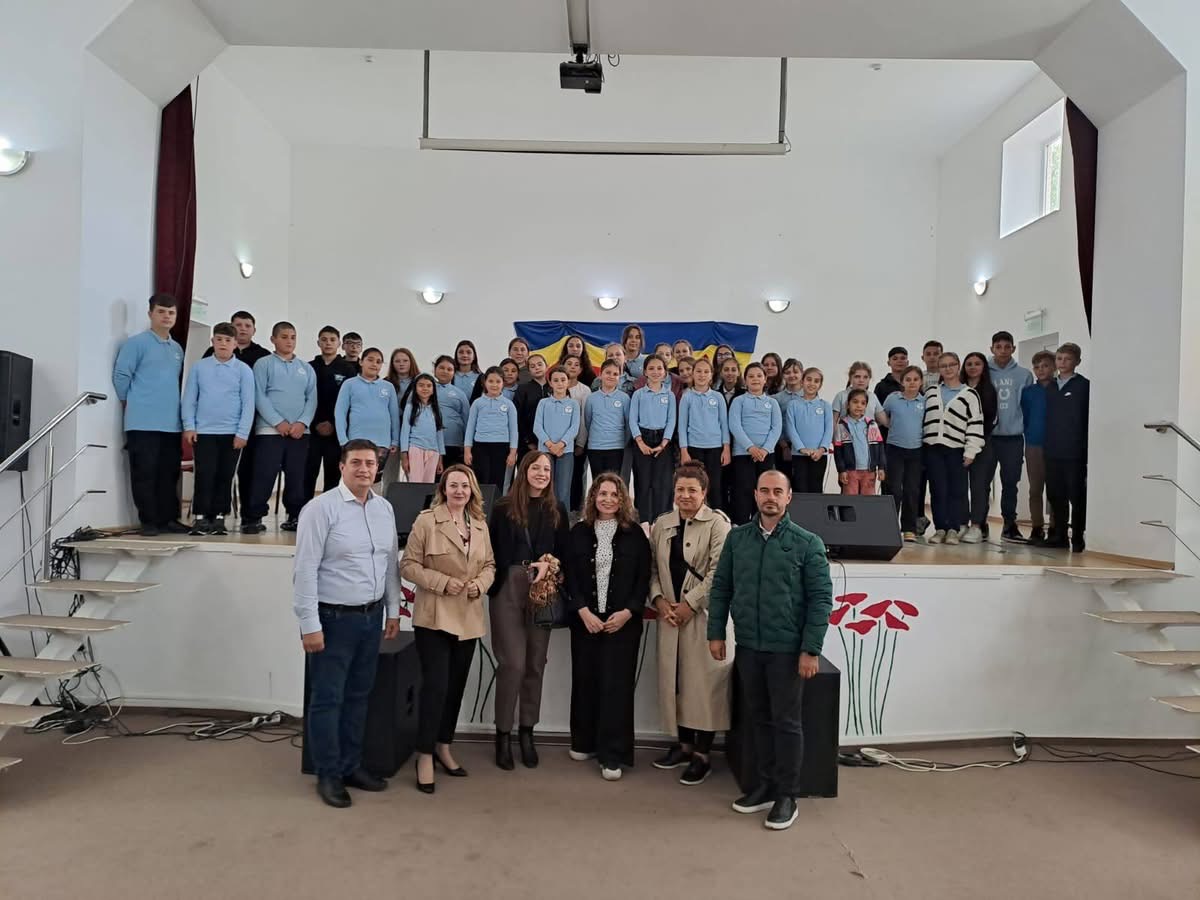
by Veslemøy Maria Svartdal
“This is a rural village. Our inhabitants are farmers, builders and fishermen working at the Danube River,” says Unirea’s young and dynamic mayor, Ciprian Olteanu (right).
Unirea, a small village in the eastern Romania, is the home to about 2,500 inhabitants. Located in the depressed region of Călărași, Unirea faces both social and infrastructural problems and is reliant on water rationing.
“The parents work hard, but they don’t earn enough to buy all the things that their children need. When the children lack proper equipment for school, they don’t attend,” explains the headmaster of the local school, Liviu Moishe (left.)
He and mayor Ciprian enjoy a close working relationship and stay in daily contact. Since being elected as the youngest mayor in Călărași, Ciprian Olteanu has made education one of his top priorities. Both he and the headmaster share ambitious hopes for the future of Unirea.
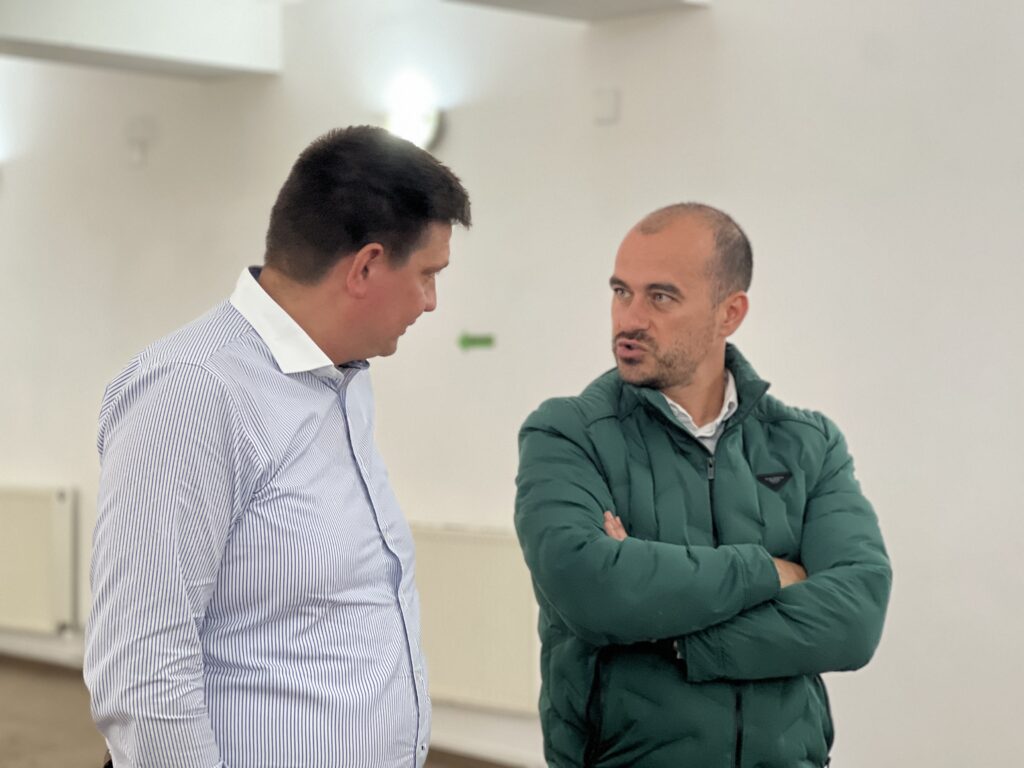
“I keep education in the highest importance, to make sure that the children have everything they need to succeed. The competition is so fierce with other schools. The children must not be afraid of school. We want the school to ignite a spark in them. That’s the type of school I want to create,” explains mayor Ciprian.
Believing that lasting improvement and long-term development can only come from investing in its children, Unirea became one of several villages to join the programme “Promoting Inclusion and Quality Education in Romania” – a bilateral pilot initiative of the European Wergeland Centre and the Romanian Social Development Fund.
Based on the Whole School Approach – which invites all students, school staff, parents and the wider community to work together to build safe and inclusive classrooms – the project invited Romanian teachers, school heads, mayors and other representatives of local administration to join specialised study trips and local trainings.
Read also: – A School is not a Castle with Closed Walls
A Milestone
Strategically located right at the centre of the village, Unirea Secondary School No. 1. Is where headmaster Liviu work to ensure children receive the best education possible. The goal is to keep young talent in Unirea, or to see them return after studying abroad to help improve their community.
Both he and the mayor attended a study trip in Oslo where they visited schools and community centres and learned the principles of building inclusive and democratic learning environments. Teachers also received training locally in Călărași.
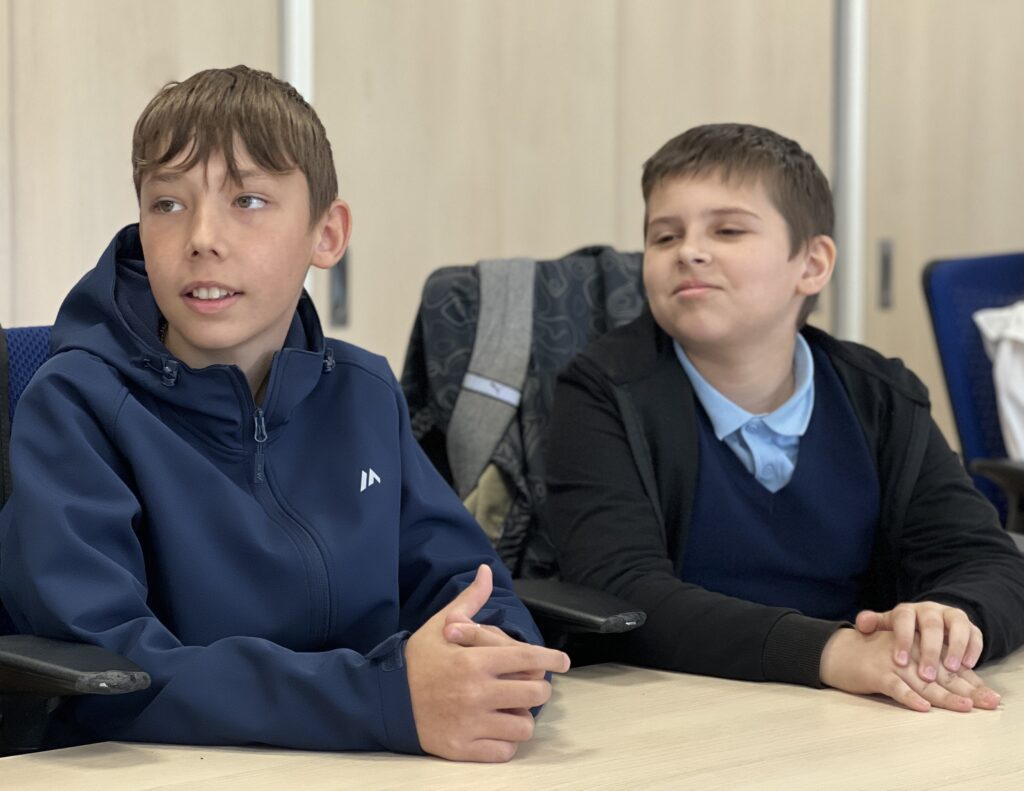
“The most important thing I took away from the study trip was to consult the students as much as possible and let them have a voice. It was so obvious – it is strange we didn’t think of it sooner! It really has opened an entirely new world of ideas for us!” says mayor Ciprian enthusiastically.
The mayor explains that since attending the training in Oslo, he and headmaster Liviu have made great changes. The students are included in everything involving the school.
Read also: Mayors and Principals Come Together to Improve Their Schools
“This change has really been a milestone for me,” mayor Ciprian says. “I want to make sure that the students understand their voices are heard and valued.
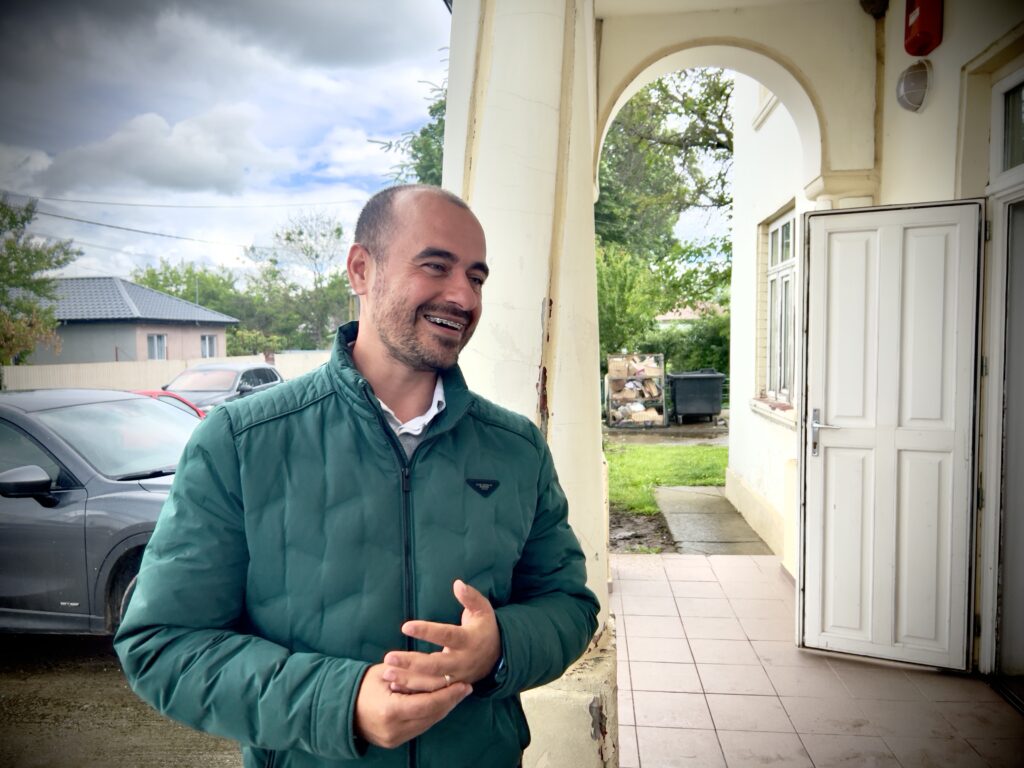
Building Democracy in the Classroom
The Wergeland Centre believes that children need to experience democracy and respect for human rights in practice. At the village school in Unirea, an active student council has been established, with representatives elected by the student body.
“We go to the teachers and ask for changes to be made and usually they happen,” says Alina (15), one of the council members.
“We understood that if we were to have a student council, the students would expect concrete action. Otherwise, they don’t want to contribute, says headmaster Liviu. “It should not only be a symbolic role.”
When Ciprian was inaugurated as mayor, the headmaster brought the student council with him, wanting to forge a tight bond between the mayor and the students straight away. The school council president delivered a speech, and mayor Ciprian happily lent her his mayoral sash.
Students also practice debate techniques and learn to represent different views. In one case, they debated inclusion and whether discrimination could ever be justified.
Read also: Suddenly they Want to go to School
“We are all like a family in my class and everyone can say their opinion. So, it wasn’t a difficult task even though the topic was difficult. I argued for inclusion and the other side against. Of course, they are not pro-discrimination, but they had to argue their position. I hope I managed to enforce the pro-inclusion position even more with good arguments, that all people are equals,” says Denis (15).
PHOTO: Alina in the middle and Denis to the left.
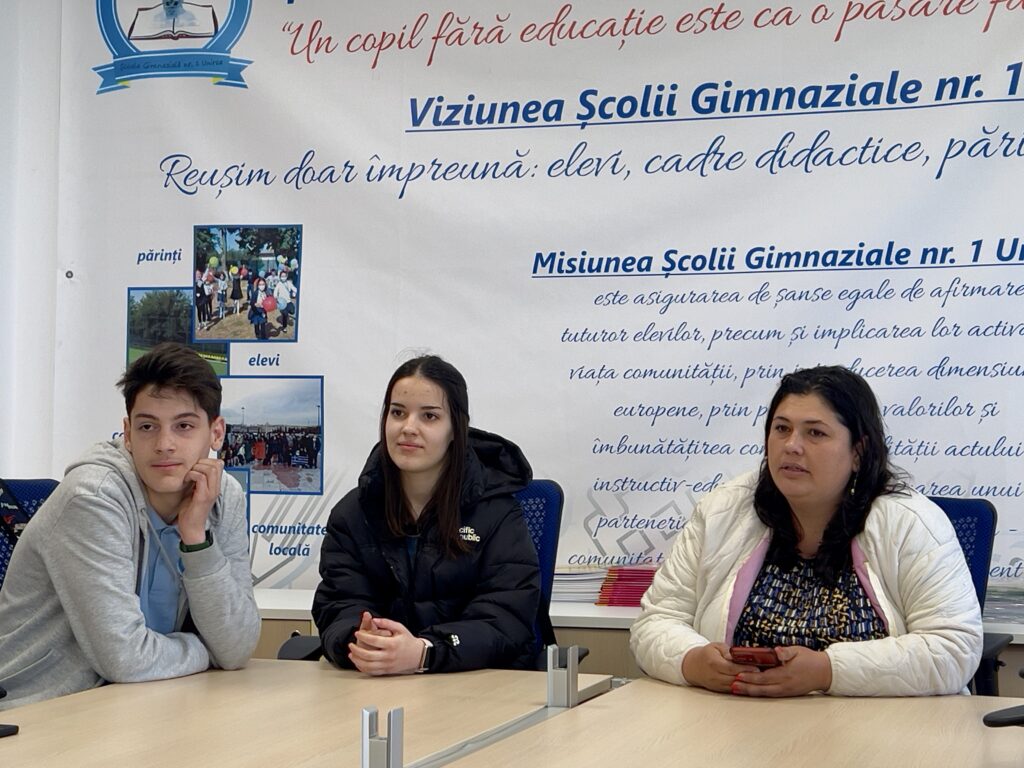
Making a Future in Unirea
The most concrete step Unirea has taken so far to promote good education, is building a new and modern school building. The demolition work has already begun. While students cannot influence the structural engineering of the new school, mayor Ciprian wants them to be involved in designing the interior and outdoor spaces.
When the municipality signed the construction contract, a special cooperation agreement was also signed with all stakeholders, including the student council.
“Thanks to this project, I see my school from another perspective. one person cannot change the world. But we can all do a small bit by doing our job, smiles headmaster Liviu.
This article is part of our ongoing series: “Change Stories from Romania,” which tells the stories of participants in the “Promoting Inclusion and Quality Education in Romania” pilot project.
Read the rest of the stories in the series:
- “We Invited the Entire Village”
- Bringing Roma History to the Classroom
- The Children Who Wait at the Gate
The pilot project Promoting Inclusion and Quality Education in Romania ran from 2024 to 2025 and included 30 schools in Călărași and Suceava. Implemented under the Local Development, Poverty Reduction, and Enhanced Roma Inclusion programme and funded by the EEA Norway Financial Mechanism 2014-2021.